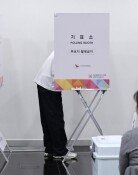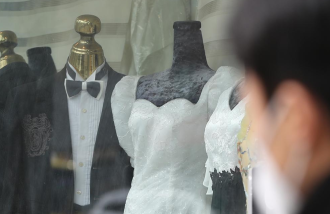[Opinion] Wireless Cheating
The curtain rose on the age of wireless in the 1930s in America. Following the development of radios in cars, wireless, which made it possible to transmit and receive messages, was made by improving on radio technology. Installed in police cars, they improved the mobility of police. The walkie-talkie, a transmitter-receiver combination of wireless, antenna, and power portable enough to carry on a battlefield appeared in 1943 at the height of World War II. They were designed to be controlled by pushing a Push button. It is said that the victory of the Allies was impossible without walkie-talkie.
The world remembers vividly the first words of Neil Armstrong, an astronaut, when the Apollo 11 mission of the U.S. succeeded in the very first arrival at the Moon in 1969. When stepping onto the surface of the Moon, Armstrong said, One small step for man, one giant leap for mankind. His words were transmitted to the Earth by wireless. Wireless is an epoch-making invention, which expanded the area of human communication into infinity.
Mass cheatings with wireless were disclosed at the examination for special admission. Wireless was used to inform correct answers in exchange for money. It is said that there was also cheating with wireless at the TOEIC. Regarding the rumors saying that there was cheating on the collage entrance test, we should prepare thoroughly, keeping cheating in mind at every exam. If supervisors respond with loose minds while the technique is getting trickier, it is likely to incite students to cheat.
It is a serious problem that the younger generation is easily defeated by this kind of temptation. The social tendency to seek easy results without effort and not to be concerned about the illegal is contaminating the genuine minds of the young. We cannot expect that the young, who enter society with this mind, will grow up right. Modern conveniences are double-edged swords, which can be used for wrongdoing, just as wireless. The same applies to the internet. Isnt it ethics that we should give the young first, rather than the latest technology? The examination for special entrance might need to include ethics as a required subject.
Hong Chan-sik, Editorial writer chansik@donga.com




![차량통행 막고 계속 찰칵…‘해운대 민폐 커플’ 논란 [e글e글]](https://dimg.donga.com/c/138/175/90/1/wps/NEWS/IMAGE/2025/05/29/131708677.1.jpg)


